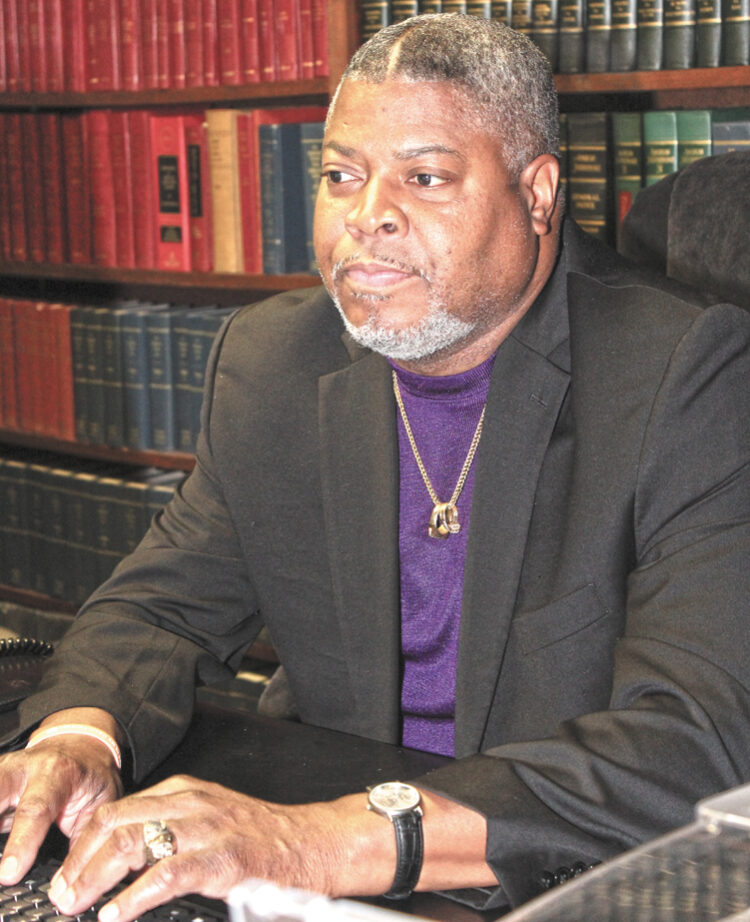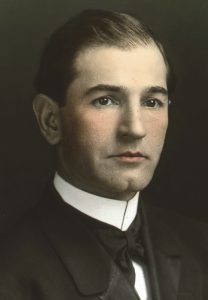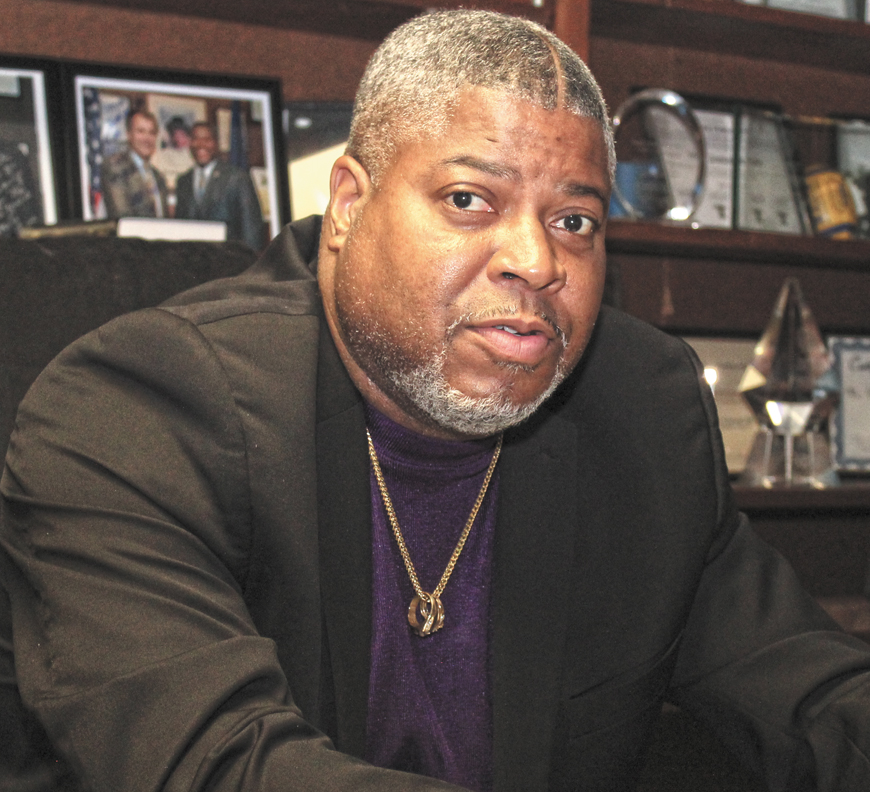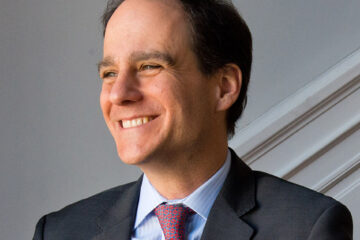An interview with Dayton NAACP Pres. Derrick L. Foward

What we can do.
By Marshall Weiss, The Dayton Jewish Observer
Now in his 14th year as president of the Dayton Unit NAACP, Derrick L. Foward announced June 8 the civil rights organization’s eight-point proposal for Montgomery County police departments and the sheriff’s office, “to build and sustain safety, employment opportunities, and equity within and across communities.” Foward was born in Kettering and raised in Jefferson Township. He is a program manager with Speedway.
With the frustration in the wake of George Floyd’s murder, and all the protests against violence and racism toward African Americans, how can we Jews in Dayton be the best possible allies to Dayton’s African American Community?
The first thing we need to do is to hear from the Jewish community: what are your areas of concern during these challenging times? We need to start a conversation, a dialogue.
We need to have a dialogue right now, especially leading up to Nov. 3rd’s 2020 election. We probably need to have a monthly dialogue on what issues are facing the Jewish community that are intermingled with the African American Community. We need to learn from one another and understand one another, and understand where we come from.
When I think back to the early 1900s, the NAACP was founded by a multi-racial, multi-generational, multi-cultural group of activists. We have to study our history. That’s one of the main things that needs to happen. We need to study each other’s history because we coexist together and have done so, especially since the early 1900s.

Rabbi David Lefkowitz, who was a leading Jewish leader, he was one of the founding members of the Dayton Unit NAACP back in 1915.
The African American community and the Jewish community are really cut from the same cloth. You are persecuted just like African Americans are persecuted. Not just persecuted but slaughtered just like we were slaughtered. So we need to understand our history.
African Americans have always patronized Jewish-owned businesses. So to give back financially to the African American community, it would be very helpful. To help educate, enlighten, enhance the overall living experience for all.
We need to use technology out there like Zoom to start interacting with one another immediately. I don’t want to look at this as what can the Jewish community do for the African American community. I want to look at it as: what can we do with each other to make an impact financially, educationally, religiously.
And when I think about religion, maybe we need to do more than just once a year during Black History Month. Because it’s all about building relationships. During Black History Month, we normally worship together.
Also, when it comes down to our relationship, to provide job opportunities. If you are in leadership positions, whether it’s in the healthcare industry, the higher education industry, manufacturing business, engineering — I would encourage you to seek out qualified African Americans to fill some high-level positions. Because they’re out there.
On behalf of the Dayton Unit of the National Association for the Advancement of Colored People, I want to commend one of your Jewish leaders, Deborah Feldman (Dayton Children’s president and CEO), for taking the position that she took with McAfee. I want to commend the decisive action that she took with McAfee Heating and Cooling for totally being insensitive to an African American man who was killed with an officer’s knee on his neck. I want your Jewish community to know that we appreciate her leadership.

In relation to other cities across the United States, how does Dayton stack up when it comes to racism against African Americans?
We have a long way to go. There is still the racial divide in technology, there’s still a racial divide in healthcare. We lost a hospital right here in the city of Dayton, where one of our local pastors — had Good Samaritan Hospital not been there — would have died. He was seconds away from death. But because that hospital was there, the Lord spared his life.
With this Covid-19, having that hospital would surely fit the good bill right now with all the cases right here in Montgomery County.
Is this the most challenging situation you’ve faced as Dayton NAACP’s president?
No. I can’t say that because we’ve seen these moments in history before: time after time after time, again. And what’s so enlightening about what’s going on today in light of George Floyd’s death is that we watched a black man — the world watched a black man — get murdered on national TV by a police officer.
The world was stunned. You see people marching all across the world: not statewide not locally not nationally, but worldwide. Because people are sick and tired. We’re tired of being sick and tired of this happening to one race of people.
At this time, do you think real change for the better is possible, with what you see going on right now?
Absolutely. I am always optimistic. And with the worldwide attention this is getting, if this world doesn’t come to grapple with race relations and deal with race relations at face value after this death on national television, maybe the end of the world is coming.
How are you holding up personally?
My heart aches. Because when I continue to see black people ruined across this nation simply because of the color of our skin, it’s hurtful. It’s sickening. It’s disgusting.
But even though it’s those things, African Americans have always had a resilient spirit and a resilient soul. We know how to face adversity and get through it. Because we’ve done it all our lives: from our parents and grandparents being sharecroppers, picking cotton.
My grandfather picked cotton to feed his family. My mother grew up in the deeply segregated South of Anderson, Ala. Our father grew up in the country bumpkin hills of Pikeville, Ky., where his father was a coal miner. Died at an early age trying to feed his family.
But I have hope that change is going to come. People are beckoning, crying out for change. This is our young African American people’s Emmett Till moment in history.
To read the complete July 2020 Dayton Jewish Observer, click here.


